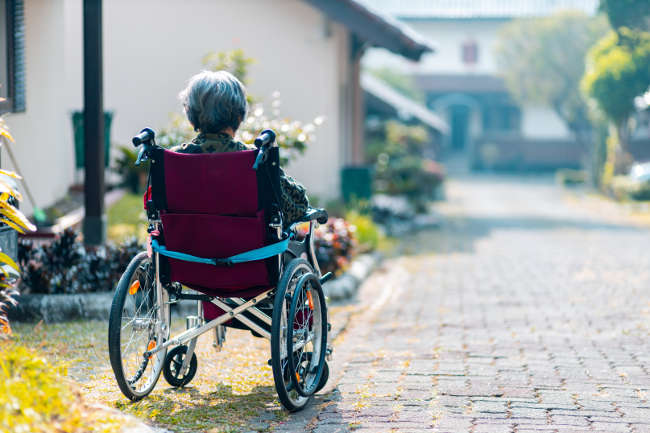
Approximately 15% of adults age 60 and over live with a mental health disorder. As older adults age, they experience greater levels of physical and emotional stress, which can contribute to declining mental wellness. Lack of mobility, chronic pain, loneliness, and social isolation are just a handful of examples.
Older adults are also vulnerable to elder abuse, which can have long-term impacts on their mental health. Unfortunately, few older Americans with mental health disorders take advantage of mental health services like senior care therapy.
This article will discuss the most common mental health disorders among older adults, the importance of elder care counseling services, and how Stowell Associates can help.
Common Mental Health Issues Among Older Adults
Mental illness is widely misunderstood and often overlooked, especially in the elderly population. The prevalence and severity of mental health decline in older adults are quickly brushed off with responses like, “Oh, that’s just a ‘normal’ sign of aging.”
According to the World Health Organization:
“Mental health problems are under-identified by health-care professionals and older people themselves, and the stigma surrounding these conditions makes people reluctant to seek help.”
The most common mental health disorders for older adults are dementia and depression, with anxiety following close behind. Let’s review the two most common mental health concerns in elderly adults and how you can recognize them.
Dementia
Dementia can be a challenging condition for healthcare professionals to diagnose because it affects cognitive function, mood, and behavior. Alzheimer’s is the most common disease under the dementia umbrella and requires careful evaluation and research into a person’s medical history.
The signs may be subtle or progress gradually, and they vary from person to person, but here are some examples:
- Forgetfulness.
- Short-term memory loss.
- Confusion with time or place.
- Difficulty completing familiar tasks.
- Misplacing things and not being able to retrace steps.
Depression
In older adults, depression can sink in after a chronic diagnosis, starting a new medication, during post-surgery recovery, or as a result of social isolation. Social interaction directly correlates with living a happier, longer life, but 27% of adults age 60 and older live alone.
Check up on your loved ones regularly, especially if they live alone, and keep an eye out for these symptoms of depression:
- Trouble sleeping.
- Feelings of “emptiness.”
- Feelings of hopelessness.
- Loss of interest in activities they used to enjoy.
- Decreased energy resulting in sleeping more.
- Irregularity in the frequency and amount of food they consume.
Don’t excuse treatable medical conditions as “normal.” If your loved one’s mental health is declining, you need to seek out professional help. Some treatments involve medication, but not all.
Before resorting to prescriptions, let’s discuss the importance of counseling in health care and alternative, non-drug approaches.
The Importance of Counseling in Health Care for the Elderly
Life-altering events can significantly influence an individual’s mental wellness at any age.
As the elderly live longer, they are more likely to experience a cumulative loss of close family and friends or a drop in socioeconomic status post-retirement. Without proper support, these events can be detrimental for older adults who may already be experiencing cognitive decline.
Geriatric counseling services can be significantly beneficial for your loved one’s mental health as they learn to cope with the grief of friends passing on.
However, the public stigma surrounding mental illness becomes a barrier that prevents older adults from seeking or accepting professional help.
As a family member, here’s how you can make a difference in your loved ones’ mental wellness.
Non-Drug Approaches: Counsel and Care for the Elderly
Senior Care Therapy
Admitting you need help doesn’t come naturally to most people. If your loved one seems increasingly depressed or anxious, start looking into elder care counseling services for them. Senior care therapy, such as cognitive behavioral therapy, is especially helpful for those with depression.
Expert Care Managers
Sometimes, your loved one may need just a little affirmation from you to acknowledge that their feelings are valid and help is necessary. Other times, you may need a care manager’s support to help with family relationship management and possibly healthcare coordination.
In-home Caregivers
People are naturally social beings. Older adults, in particular, require interaction with others, but family members aren’t always available. Nearly one in four adults age 65 and older experience social isolation, which is why personal caregivers are more than just a helping hand for mom and dad – they’re companions.
Palliative Care
For older adults experiencing depression or discomfort after a severe diagnosis, consider looking into palliative care. A palliative caregiver can help manage your loved one’s physical symptoms and improve their quality of life as they walk through treatment.
Premium Home Care and Support
If you need help navigating complex care situations, Stowell Associates’ care managers are on standby waiting for your call. We may not provide elder care counseling services, but we do provide elder care management.
Our expert care managers provide clarity around senior care and present you with the best options based on your family’s unique situation.
Our professional caregivers are passionate about supporting your elderly loved ones. Personal in-home care provides ongoing, daily support that enables your aging mom or dad to safely age in place. Some examples of our in-home care services include:
- Meal preparation.
- Bathing and toileting.
- Grocery shopping and errands.
- Grooming and dressing guidance.
- Social engagements and appointments.
Stowell Associates provides families with solutions and support through expert care managers who develop Whole-Person Care plans for elderly loved ones.
Get care today for your family by contacting our Care Team.









